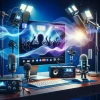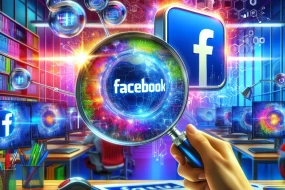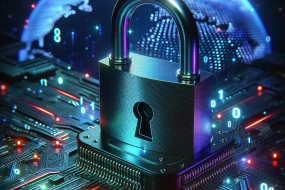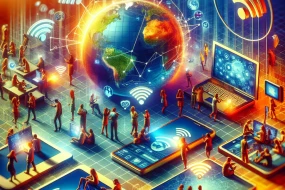
In the fast-paced world of technology, staying connected with your audience is more crucial than ever. Facebook Live offers an unparalleled platform to engage in real-time, providing a dynamic way to reach tech enthusiasts and professionals alike. But how do you ensure your live sessions are not just watched but truly engaging? In this guide, we’ll delve into the best practices for using Facebook Live to captivate your tech audience, turning viewers into active participants.
Understanding Your Audience
Before you even hit that 'Go Live' button, it's essential to know who you're talking to. Tech audiences can be diverse, ranging from software developers to tech enthusiasts who dabble in gadgets. Start by defining your target audience. Are they looking for in-depth technical insights or more general tech news? Tailoring your content to meet their expectations is key. A common mistake is assuming all tech audiences have the same level of expertise. Avoid jargon-heavy discussions unless your audience is well-versed in the field. Instead, aim for clarity and relevance.
Planning Your Content
Preparation is the backbone of a successful Facebook Live session. Start by outlining your key points. What message are you trying to convey? Create a loose script to keep you on track but allow room for spontaneity to keep things lively. Consider incorporating real-world examples or analogies that resonate with your audience. For instance, when discussing cybersecurity, you might compare it to locking the doors of your house—simple yet effective. Avoid overloading your session with information. Focus on one or two main topics to prevent overwhelming your audience.
Choosing the Right Time
Timing can significantly impact your engagement levels. Analyze your audience's behavior to determine when they're most active. For instance, tech professionals might be more available during lunch breaks or after work hours. Facebook Insights can provide valuable data on when your followers are online. A common pitfall is scheduling your live sessions during peak work hours when your audience is likely busy. Instead, aim for times that align with their availability, increasing the chances they’ll tune in.
Promoting Your Live Session
Promotion is crucial to ensure your audience knows when to tune in. Start promoting your session at least a week in advance. Use all available channels—Facebook posts, stories, email newsletters, and even other social media platforms. Craft engaging teasers that highlight what viewers can expect to gain from your session. A mistake to avoid is underestimating the power of reminders. Send out a final reminder on the day of the event to capture last-minute interest. Consider using countdowns or engaging graphics to create excitement.
Engaging with Your Audience
One of the main advantages of Facebook Live is the ability to interact with your audience in real-time. Encourage viewers to ask questions and participate in the discussion. Use their names when responding to questions to create a personal connection. It's a simple gesture that can make your audience feel valued. Avoid ignoring comments or questions as it can disengage your viewers. If you can't address all questions during the session, consider following up afterwards. This continued engagement can foster a loyal community.
Utilizing Visuals and Demonstrations
Visuals can significantly enhance your live sessions. Whether it's a screen share, a product demonstration, or infographics, they can help clarify complex information and keep your audience engaged. For instance, if you're discussing a new software tool, a live walkthrough can be more effective than a verbal explanation. A misstep to avoid is overloading your session with visuals that don't add value. Each visual should serve a purpose, reinforcing your message rather than distracting from it.
Handling Technical Glitches
Technical issues are a common challenge during live sessions, and handling them gracefully is vital. Test your equipment beforehand—microphone, camera, and internet connection. Have a backup plan in case something goes wrong. If a glitch occurs, remain calm and communicate with your audience. Let them know you're addressing the issue, and keep them engaged with a related topic while you troubleshoot. Avoid panicking or ignoring the problem, as it can lead to a loss of credibility and viewer trust.
Post-Session Engagement
Your engagement shouldn't end when the live session does. Post-session interactions can reinforce your message and maintain audience interest. Share a summary of the session's key points or a recording for those who couldn't attend live. Encourage feedback and discussions in the comments section. This continued interaction can provide valuable insights into what your audience enjoyed and what can be improved for future sessions. A common oversight is neglecting this post-session engagement, which can lead to missed opportunities for deeper connection with your audience.
Analyzing Your Performance
After your session, take the time to analyze its performance. Use Facebook's analytics to understand viewer demographics, engagement rates, and drop-off points. This data can provide valuable insights into what worked and what didn't. Were there specific moments where engagement spiked? Understanding these patterns can help you refine your future sessions. Avoid dismissing negative feedback. Instead, view it as an opportunity for growth. Constructive criticism can guide you in crafting even more effective content.
Continuing the Conversation
Finally, ensure that your live sessions are part of a larger conversation. Encourage your audience to continue discussing the topics on social media, forums, or even through a dedicated group. This ongoing dialogue can help build a community around your brand, fostering loyalty and engagement. A mistake to avoid is treating your live session as a one-time event. Instead, view it as a stepping stone to deeper engagement and interaction with your tech audience.






























